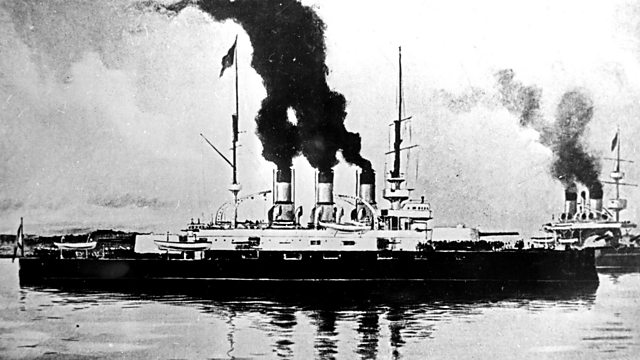Battleship Potemkin
Professor Ian Christie discusses Sergei Eisenstein's film Battleship Potemkin as a response to World War I.
How great artists and thinkers responded to the First World War in individual works of art and scholarship
7.Ian Christie on Sergei Eisenstein's Battleship Potemkin
For Russians of Sergei Eisenstein's generation, the experience of the First World War was overtaken by the revolution of 1917, which took Russia out of the war and plunged it into a bitter civil war from which the infant Bolshevik Soviet state emerged.
Eisenstein seized the opportunity of serving in the Red Army in order to become a radical theatre director, which led him into film as part of the first generation of Soviet film-makers who would astonish the world in the late 1920s with films like The Battleship Potemkin and October. These films would shape the cultural and political landscape of the interwar years - championed by those who wanted to condemn the Great War as an imperialist struggle, and also foreshadowing the Second World War, as in Eisenstein's Alexander Nevsky.
The distinguished film historian Ian Christie untangles this complex story.
Producer Beaty Rubens
Producer : Beaty Rubens.
Last on
Broadcast
- Tue 1 Jul 2014 22:45Βι¶ΉΤΌΕΔ Radio 3
Death in Trieste
Watch: My Deaf World
The Book that Changed Me
Five figures from the arts and science introduce books that changed their lives and work.
Podcast
-
![]()
The Essay
Essays from leading writers on arts, history, philosophy, science, religion and beyond.





